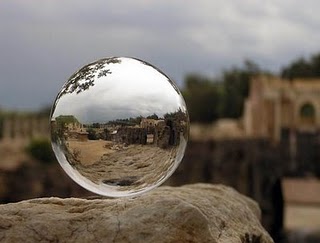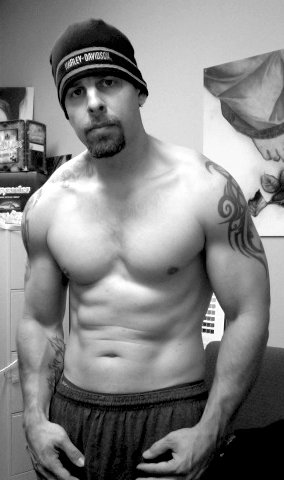As the year draws to a close, I thought I would write a few articles dedicated to the things I’ve learned most this year in the field of medicine. The position I hold as a clinician in the healthcare industry – running an active practice in two different parts of the country, consulting with hundreds of people with varying health conditions, seeing what works and what doesn’t – affords me a perspective that no amount of formal training can really prepare you for. Good doctors are always open to learn from their patients, as their patients offer them the opportunity to practice their art and gain valuable real-world experience. The human body is an amazingly complex and dynamic organism which intimately interacts with its environment and this interaction produces subsequent results in the body, which we qualitatively term health or disease. The important thing here to consider is the nature of this interaction.
Some of you will recognize this as the nature vs. nurture debate – which of the two reigns supreme? Which is most important in the outcome of your health? Many forms of medicine base their applications on the nature side, where your genetic makeup is seen to be the stronger predictor of health, which oftentimes leads people to think that there is not much one can do to ward off diabetes, heart disease, cancer, depression, alzheimer’s – if indeed genes tell most of the story. “Well my father and his father had heart disease, so that explains why I have it……”. There’s not much you can do if the genetic cards you were dealt are not favorable, right? And so treatment options here are more focused on alleviating the symptoms of these diseases, trying to diligently postpone further tragedies that are well known to follow. Now there’s a big difference between genetic chromosomal abnormalities such as Down’s Syndrome and then genetic alterations which predispose one to a disease like diabetes or autoimmune thyroiditis. I am talking more about the latter.
I happen to believe more in the nurture side of the equation, at least in terms of its playing a larger role in the vast majority of the health conditions we face today, and my experience in clinical practice is what has shaped this belief. Mind you, I say vast majority, and these are the diseases that we spend most of our money on (see above). I feel that Dr. Francis Collins, current director of the National Institutes of Health and past chief of genetics at the NIH (then head of the Human Genome Project) said it best, that “while genes may load the gun, environment pulls the trigger.” Wow, isn’t that a loaded statement! Here’s someone who has a lot of credibility in the field of genetic research and he is revealing the close relationship between the environment and the genes and saying then environment is the dominant, controlling factor. It’s not until the right environmental factors line up that activate (or pull the trigger of) the genes that we get the resultant genetic expression (in this analogy, the bullet). This resultant genetic expression is then qualified as one’s overall health and sense of well-being, or lack thereof. As you can probably guess by now, treatment options based on this perspective center more on the environment – changing the individual’s surround – their diet and physical activity, as well as how to better deal with stress, etc. This is where lifestyle comes into the picture.
All this serves as the background which I ask you to consider in the following. When you are looking to improve your health (i.e. your resultant genetic expression), you must be willing to learn what is the optimal environment which conditions your body (your genes) to express health. You, as an individual, respond to your environment in unique ways that oftentimes will be similar to those around you, where also on many occasions will be quite different. For example, the diet that works for your friend, husband, wife, or child may not work for you, and this should come to you as no surprise. Furthermore, what worked for you at one time in your life, may not work for you at another time – again, this should not come as a shock. You are a different person today than you were 10 or 20 years ago, and many things in your body change over time. Sometimes these changes occur as a result of environmental damage – we call this ‘toxicity’, where body functions are unfavorably altered through exposures to damaging substances. This could come in the form of the many chemicals, heavy metals and processed food stuffs we have in our environment today, or even prolonged stress, and you will need to deal with this effectively if you are to regain your health. Other times the changes occur just as a result of your age, and this has more to do with the natural hormone changes that occur throughout your life. More often than not, it is some combination of the two.
Now with all the media and commercial advertisements vying for everyone’s attention, people tend to get confused as to what they need to do (or buy!) to be healthier. There is such a mixture of both good, respectable health information made available today which has to compete against the cunningly deceptive, larger-than-life claims designed for mere commercial interests that usually the more polished presentation wins in the eyes of the consumer — and guess which that is! The latest Amazonian bush berry juice curing your diabetes, or the latest fitness gizmo to spot reduce your underarm fat —- you name it, we’ve all seen it. So much sensationalism, so little reality. So what I have learned in this age of competitive chaos in healthcare is this – the art of simplicity and focusing on the big picture. I have shifted my practice to emphasize to folks where they can get the biggest bang for the buck, stressing the main areas that need consistent, specific attention and letting all other less important topics just sit on the backburner until further need. We don’t need to make health into a quest for some mythical holy grail, consuming us in the process – look again to the inordinate amount of money we throw into our healthcare system and the painfully poor results we get in return; we simply need to learn and master the basics so that it can run on auto-pilot as we all have much more important things to do in life. The basic health triad of nutrition, exercise and sleep is the backbone to everything else.
This is where someone like me comes in, where oftentimes I have been called a ‘health detective’. We all need the help in discovering what those optimal environmental factors are that are going to change our health for the better. Do you need to detoxify? Maybe, maybe not. Do you need to eat differently? More than likely if you have health problems, but in what way? Are you deficient or excessive of a particular nutrient or nutrients? Given the state of our current industrialized food supply, there’s a fair chance. Do you need to be more active? Probably, and if not, you may need to change the type of activity you do. Do you need to get more consistent, higher quality sleep? If you are like most people who are chronically over-stressed, tired and rundown, then definitely. So where do you start?
Stay tuned for my next post which I will discuss in much greater detail ‘The Big 3’ – nutrition, exercise and sleep, and what current scientific research has to say about all of them and how to most easily and consistently get the biggest bang for your buck. You owe it to yourself to learn how to be most efficient, economical and effective in your health investment. The answers may surprise you!
Yours in health,
Ricardo Boye















